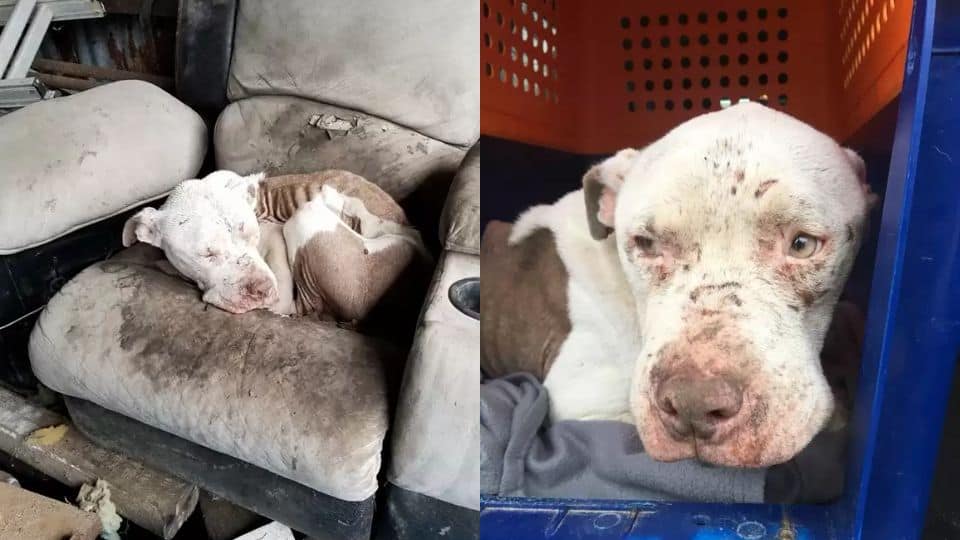
LaChrystal Ricke had spent years scrolling through heartbreaking posts from her Houston community, but one late-night image hit her harder than anything she’d seen before.
It was a grainy Facebook photo of a dog curled into a filthy armchair outside a dim gas station — a dog so thin his bones cast shadows in the porch light.
His face rested against the torn seat cushion as if he had simply run out of places in the world where he felt safe.
The Photo That Changed Everything
Something inside her tightened. Ricke didn’t hesitate. She didn’t think twice.
She grabbed her keys and headed out the door with the determination of someone who knew that a dog’s life depended on how quickly she could get there. “I just knew he couldn’t stay out there another minute,” she later explained.
The streets in that part of town weren’t forgiving, especially at night. The longer the dog stayed, the higher the danger grew.
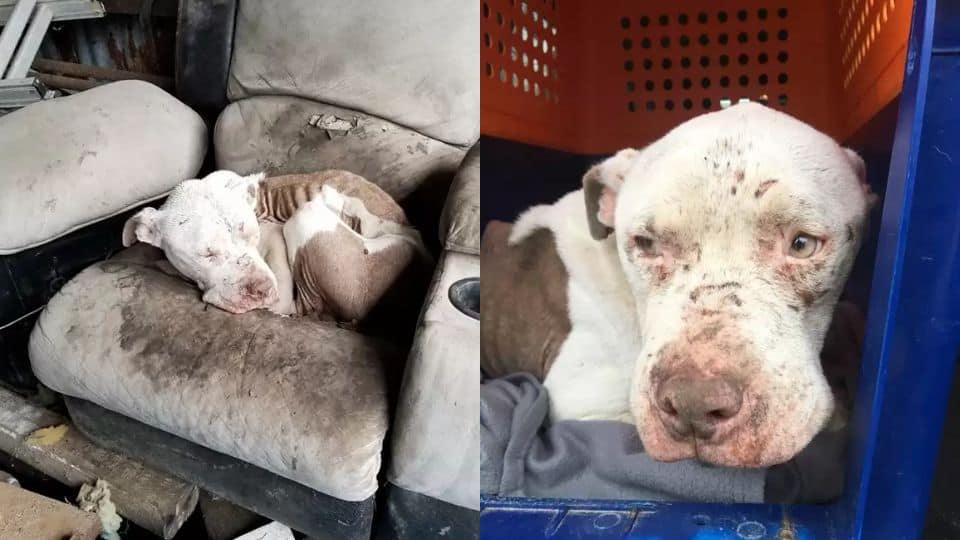
When she arrived, the area looked even harsher than the picture had shown. Old neon signs flickered overhead.
Cars came and went without noticing the forgotten armchair. But the dog — later named Aniken — was nowhere in sight. She checked behind dumpsters, between broken fences, around abandoned sheds, listening for the soft shuffle of paws. Nothing.
Unsure where else to look, she turned back to Facebook, hoping the community could spot what she couldn’t.
She left a message in the thread that had brought her here: If anyone is close by, please come help me look. I can’t find him anywhere. Ricke hated the idea of leaving him behind, but the streets were quiet, and he had disappeared into the night.
She went home with a heavy heart, but she wasn’t giving up. She just needed help.
The Trail That Led to Something Unexpected
At sunrise, two volunteers drove straight back to the gas station and began searching door-to-door. Most people shook their heads — no dog, no movement, no idea what they were talking about.
But then a small street dog appeared from behind a stack of discarded lumber. She was bright-eyed, surprisingly healthy, and determined to be noticed.
The volunteers would later call her Tessa.
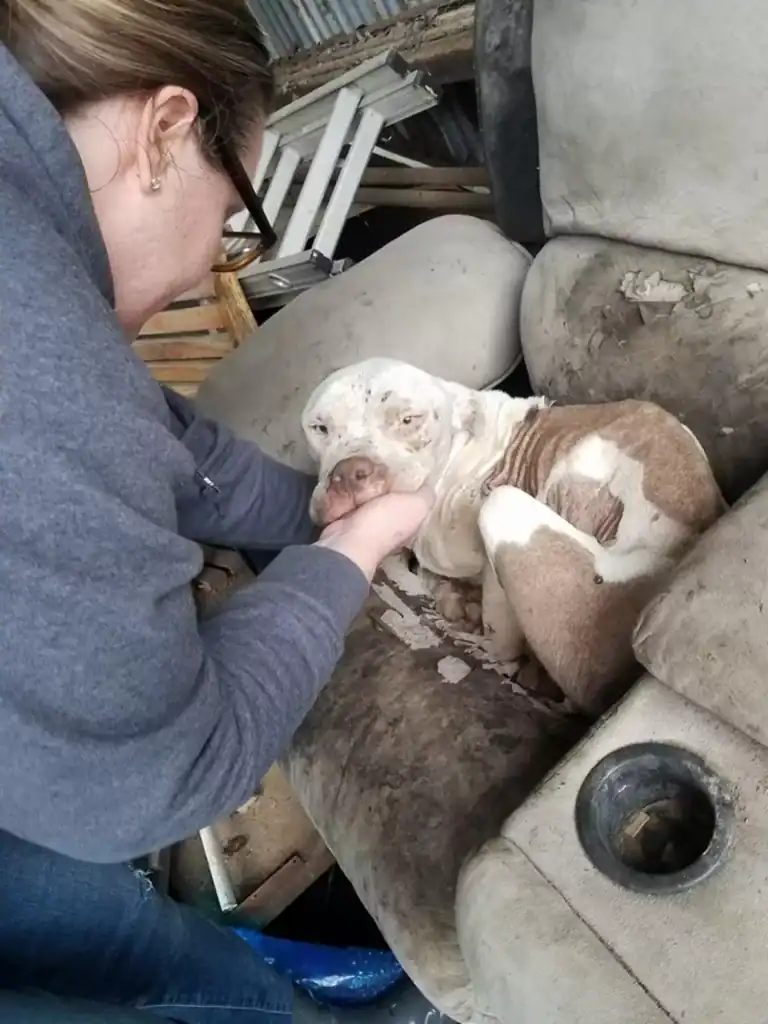
Tessa barked, circled them, then trotted several steps away before turning back as if saying, Follow me, I’ll show you where he is. Curious, they followed her through a narrow walkway behind the property.
The farther they walked, the worse the surroundings became.
Rusted car parts covered the ground. Old food containers littered the dirt. Garbage was piled high against the walls of a leaning shack, the kind of place no dog should ever have to survive in.
Then they saw him.
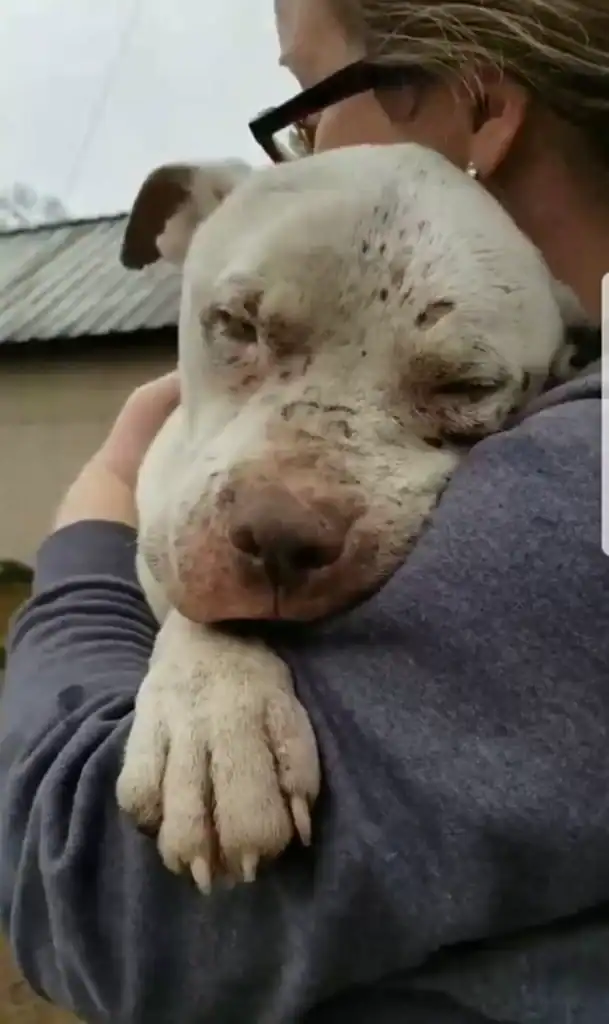
Aniken lay curled on that same armchair from the photo, hidden deep in the shadows.
His head lifted just enough to acknowledge them, though his eyes looked heavy, swollen, and tired in a way no dog’s eyes should. He didn’t growl or run. The poor dog simply lay there, as if bracing for whatever happened next.
LaChrystal hurried back the moment she received the call. When she saw him for the first time up close, her breath caught in her throat.
He was far thinner than she expected — skin and bone, trembling, and hesitant to move. She carried him gently to her car, with Tessa following behind as if making sure he wasn’t being taken somewhere worse.
At the time, she believed he was simply another neglected street dog. She had no idea the truth was far more painful.
The Terrible Secrets Hidden Beneath His Fur
Back at home, she and her husband opened the crate to let Aniken stretch his legs.
That’s when the real shock set in. Deep wounds — some infected, some partially healed, some sewn by unskilled hands — covered his body.
The injuries oozed with infection, and his fur was matted with dried blood. His ribs jutted sharply through his skin.
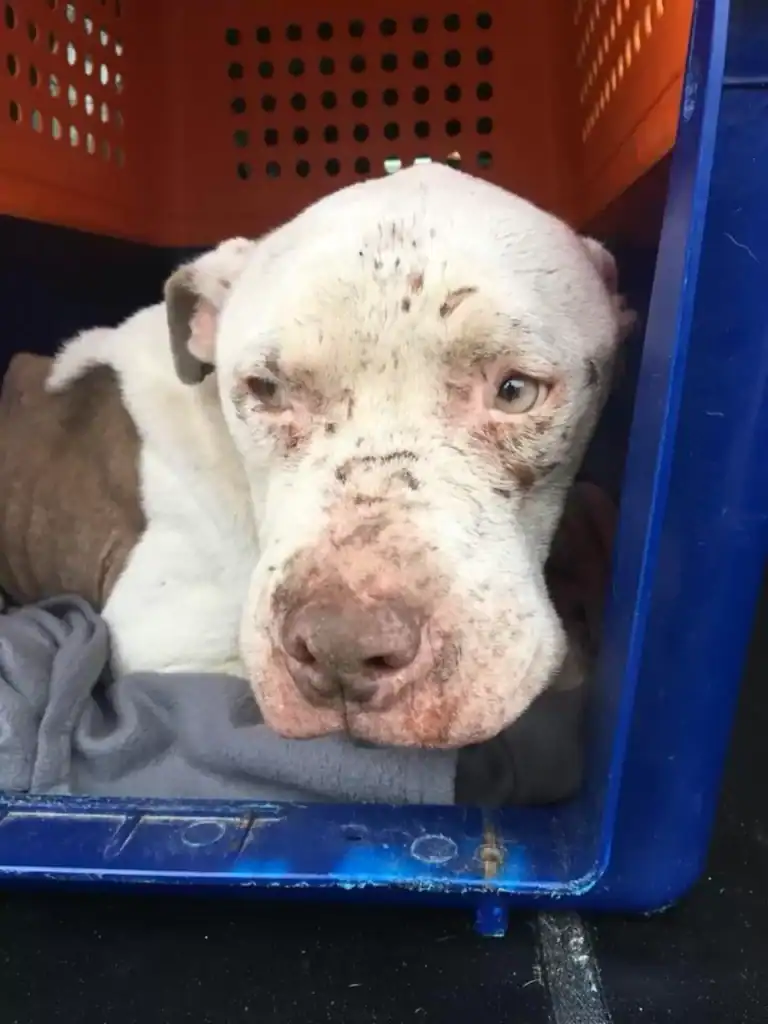
They didn’t waste a single second. They rushed him to BluePearl Emergency Pet Hospital.
Veterinarians examined him with somber faces. They checked his organs, his blood levels, his reflexes. They looked at the wounds more closely. Then one doctor gave a quiet sigh — a sound that made every stomach in the room tighten.
“This isn’t just neglect,” the vet whispered. “This is one of the worst cases we’ve seen. We’re almost certain he was used as a bait dog.”
LaChrystal’s first instinct was disbelief. She’d heard people misuse that term before, often out of emotion rather than fact. But when they gently opened Aniken’s mouth, her heart sank.
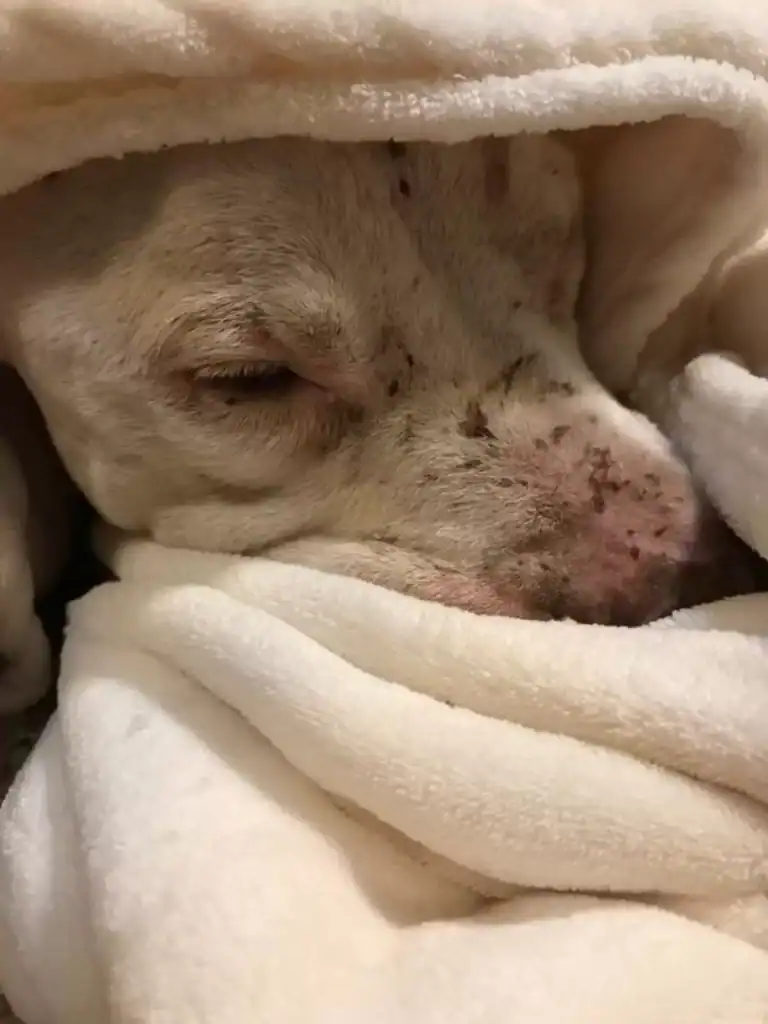
His teeth had been intentionally removed or filed down — a cruel, calculated way to keep him from defending himself. The scars matched the pattern of repeated attacks.
His stitched wounds were the kind of makeshift repairs done by someone who didn’t want to spend money on proper medical care.
Everything pointed to a terrible truth: he had been harmed again and again purely for the entertainment or training of others. The thought alone made her chest ache.
Aniken stayed at the emergency hospital for days, surrounded by people who refused to let him slip away. Despite his pain, he never snapped or growled.
He endured each exam with quiet acceptance, leaning into gentle hands as if he was still trying to understand kindness.
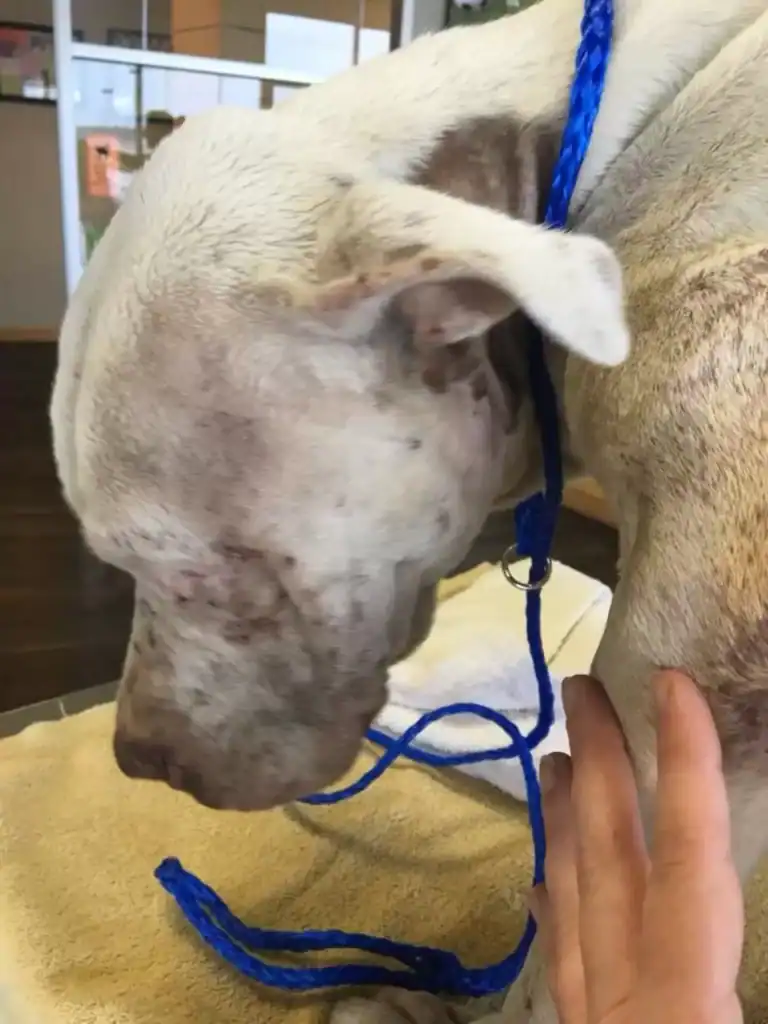
One of the nurses, moved by his trembling and uncertainty, brought him a soft stuffed elephant during her lunch break. At first he didn’t know what to do with it.
Then, slowly, he pressed his chin against the plush toy and drifted into a deeper sleep than he’d had in years. It was the first possession he had ever been given — the first object that belonged only to him.
That small gesture became the emotional turning point in his care. For the first time, he felt comfort.
Learning to Feel Safe Again
Once Aniken stabilized, he was transferred to a primary veterinary partner for continued treatment. The infections began to clear.
His wounds started healing. He gained a little weight each week, though he was still fragile.
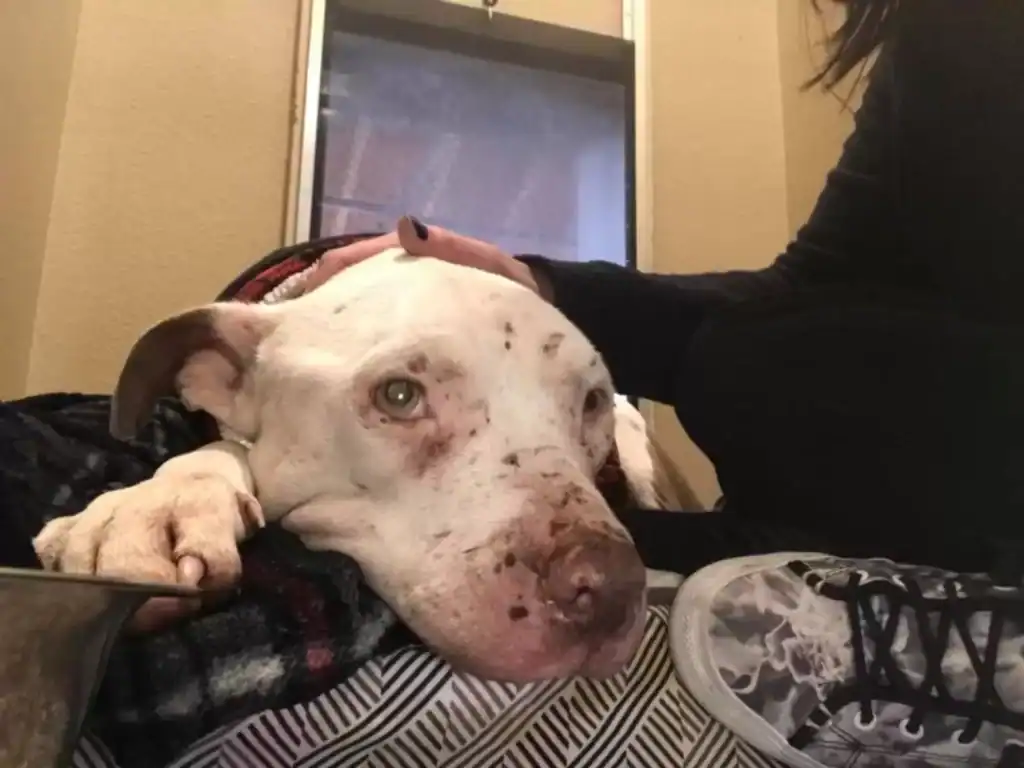
Soon after, he was welcomed into a foster home — a quiet place with warm blankets, soft lighting, and people willing to love him slowly.
His foster parents moved gently around him so he would never be startled. They gave him sweaters for the cold mornings. They placed his stuffed elephant near his bed each night, always within reach.
At first, Aniken hovered in doorways, unsure whether he was allowed to come inside.
He froze when someone raised their arm, even if they were only reaching for a cup. Sudden noises made him retreat to corners. Every movement seemed to remind him of the life he had known before.
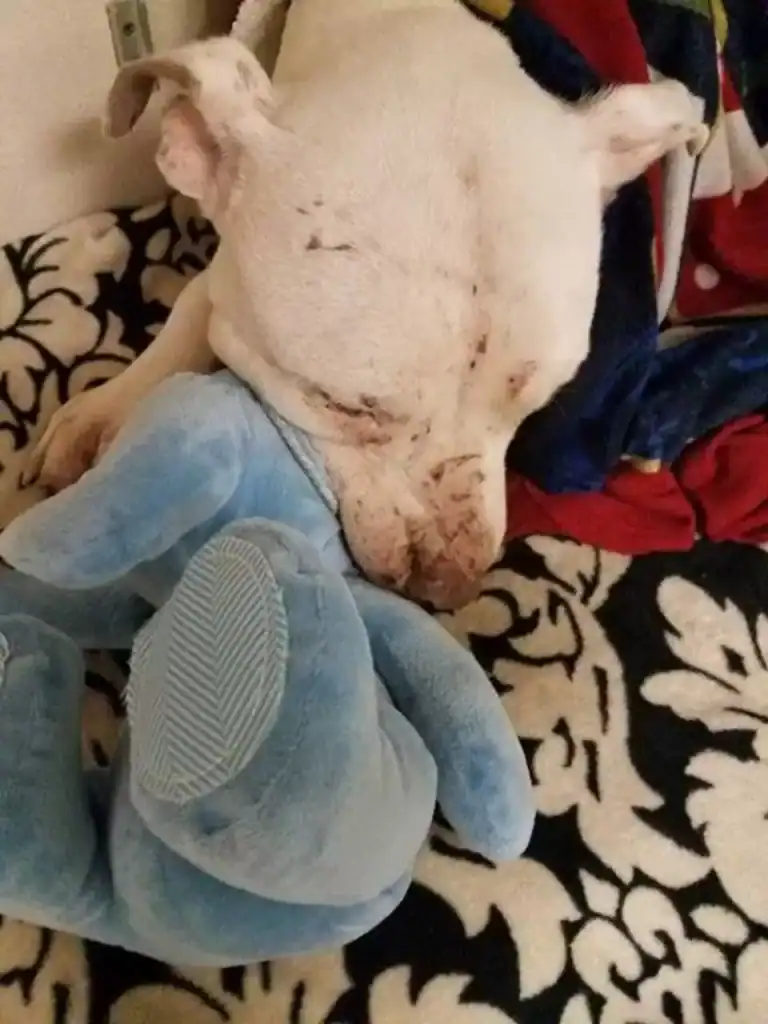
But day by day, tiny breakthroughs appeared.
He began following his foster dad from room to room, choosing to stay close without being asked. He wagged his tail softly when the other dogs invited him to nap beside them.
Aniken discovered the gentle joy of curling on a couch, sinking into cushions that didn’t smell of fear or gasoline or garbage. Each time he touched his stuffed elephant, his breathing softened.
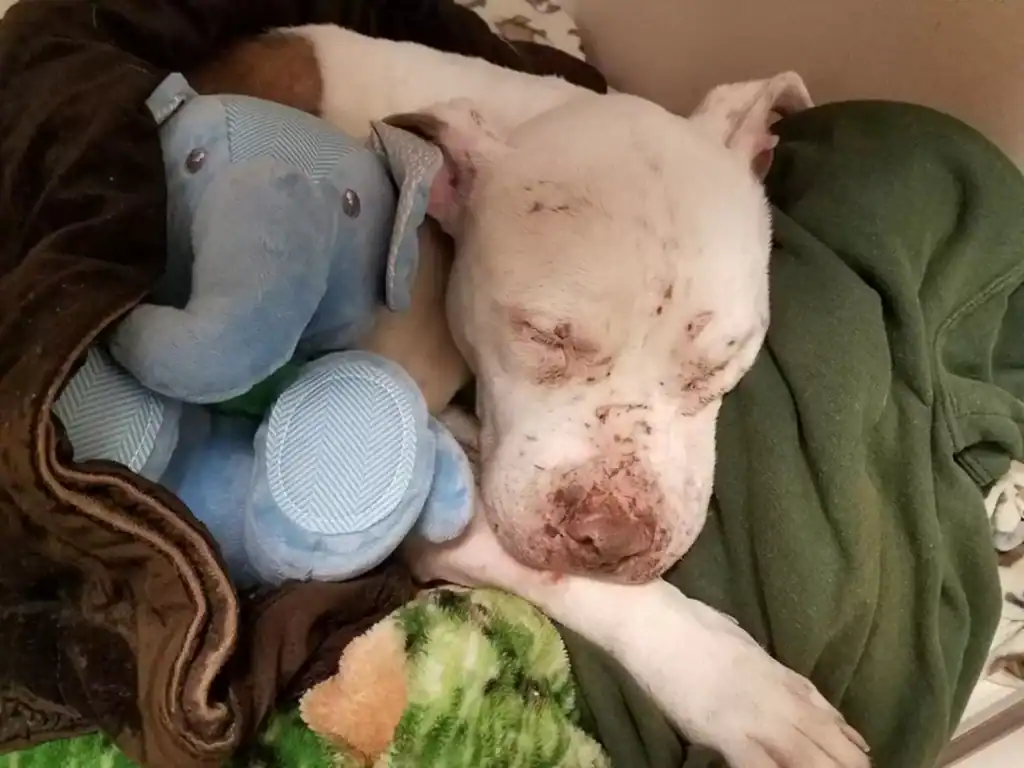
His progress wasn’t quick, and it wasn’t always steady.
But it was real — visible in the way he lifted his head with more confidence, walked with steadier steps, and allowed the faintest spark of hope to settle behind his eyes.
A Future Built on the Love He Never Had
Healing from such deep trauma is never simple.
A dog who has known fear for so long doesn’t wake up one morning magically trusting the world again. But Aniken now lives each day surrounded by kindness, predictability, and gentle care — the very things he had been denied for so long.
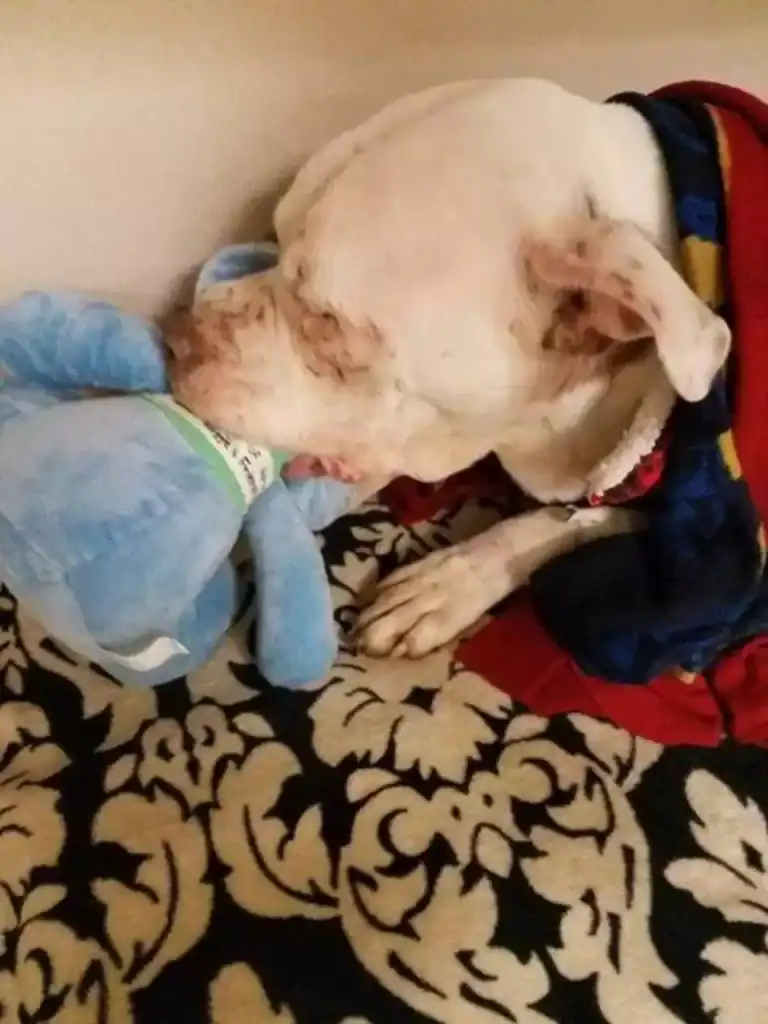
His foster home gave him something he had never experienced before: the reassurance that he would not be hurt.
They gave him routines, warm meals, soft blankets, and companionship. They offered love in a steady stream, never rushed, never forced. And slowly, he leaned into it.
He’s still shy around new people, and he may always carry pieces of his past within him.
But he now understands that a hand reaching toward him can bring warmth rather than pain. He knows the sound of his foster dad’s footsteps means time on the couch, not danger. He knows that food will always come, that soft voices belong to friends, and that he will never again have to defend himself from cruelty.
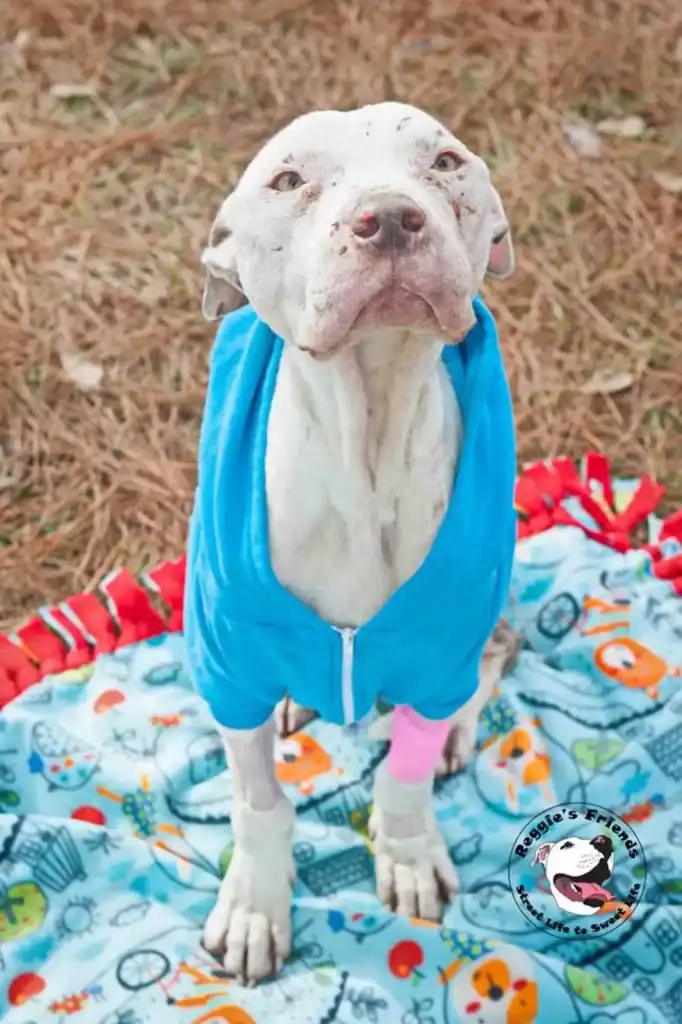
For a dog who was once thrown away, ignored, and used without mercy, these simple realities are nothing short of extraordinary.
Aniken’s journey is far from over, but his life has already transformed in ways he never could have imagined.
The gentle dog who once lay alone on a filthy armchair now spends his days discovering what it means to belong. And for the people who saved him — from the volunteers to the nurses to his foster family — watching him take each small step forward has been one of the greatest reminders that compassion can rewrite even the saddest beginnings.
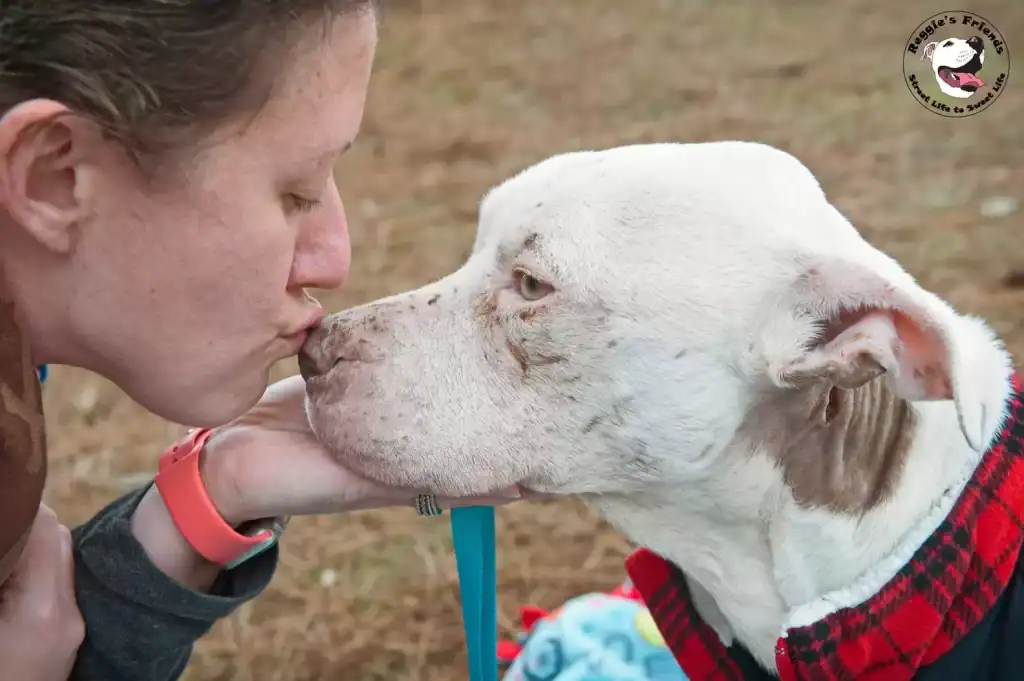
His past may have been dark, but his future glows with the warmth of people who refused to look away.
And as he curls beside his stuffed elephant each night, safe at last, one thing is beautifully certain: Aniken finally knows what love feels like.
